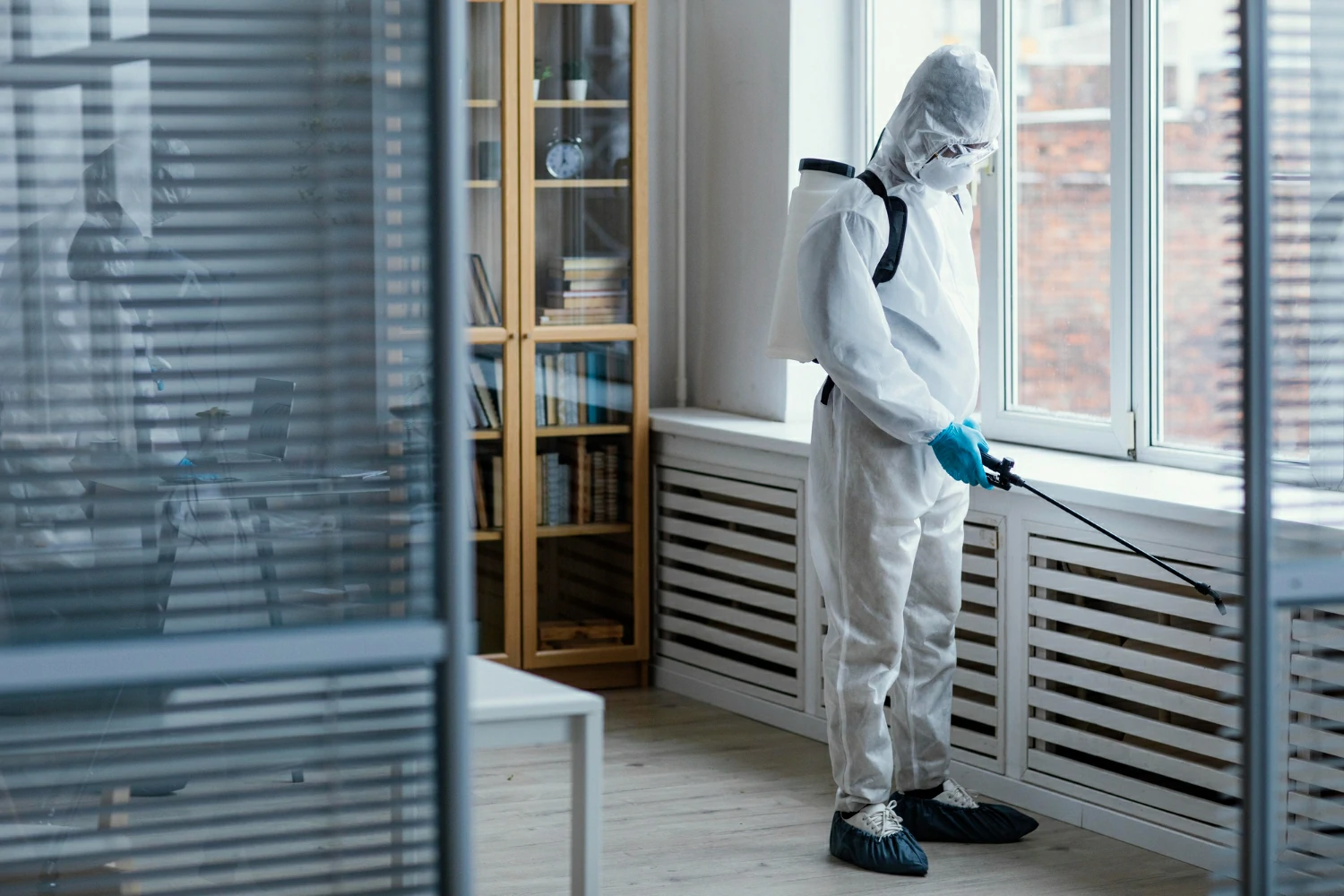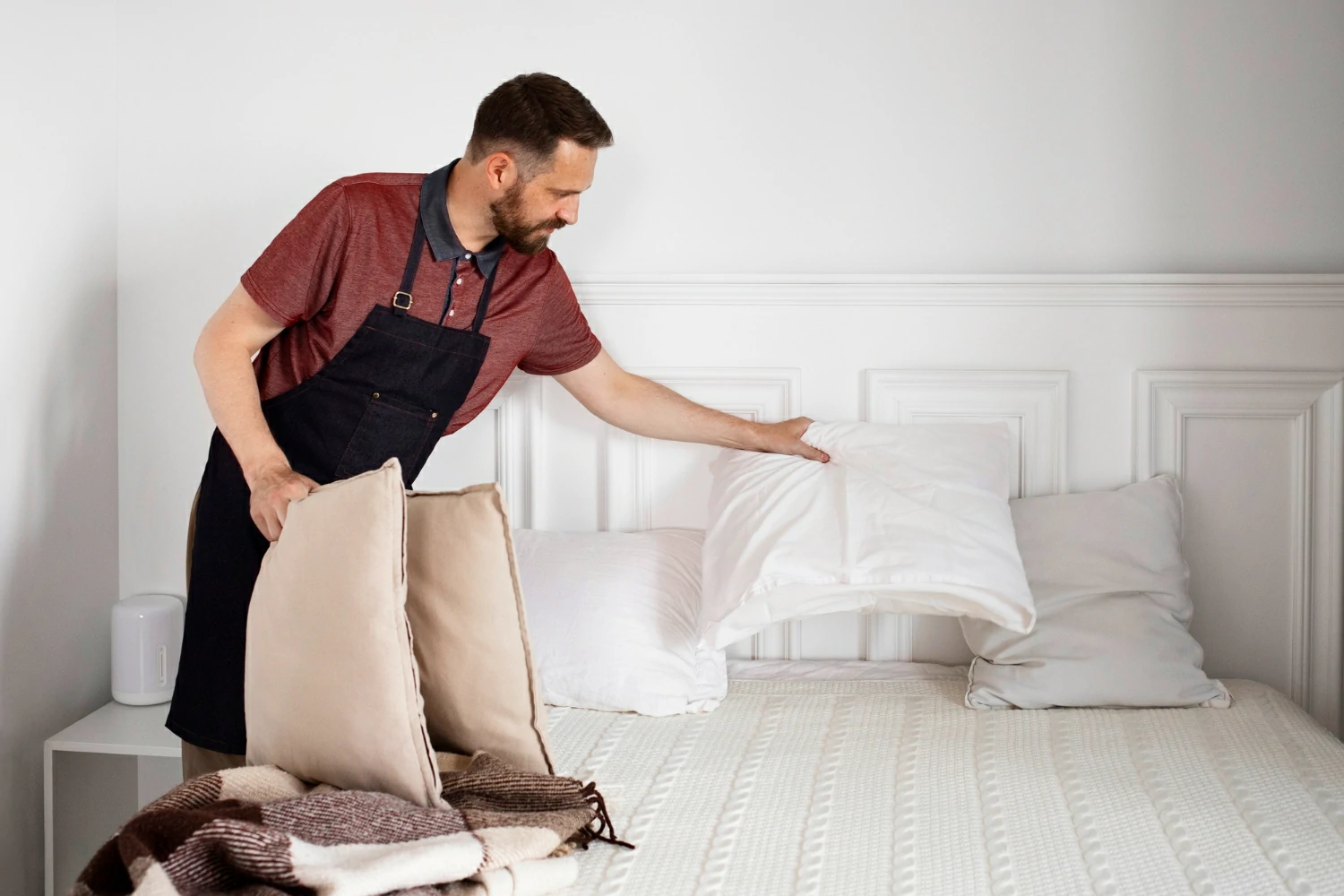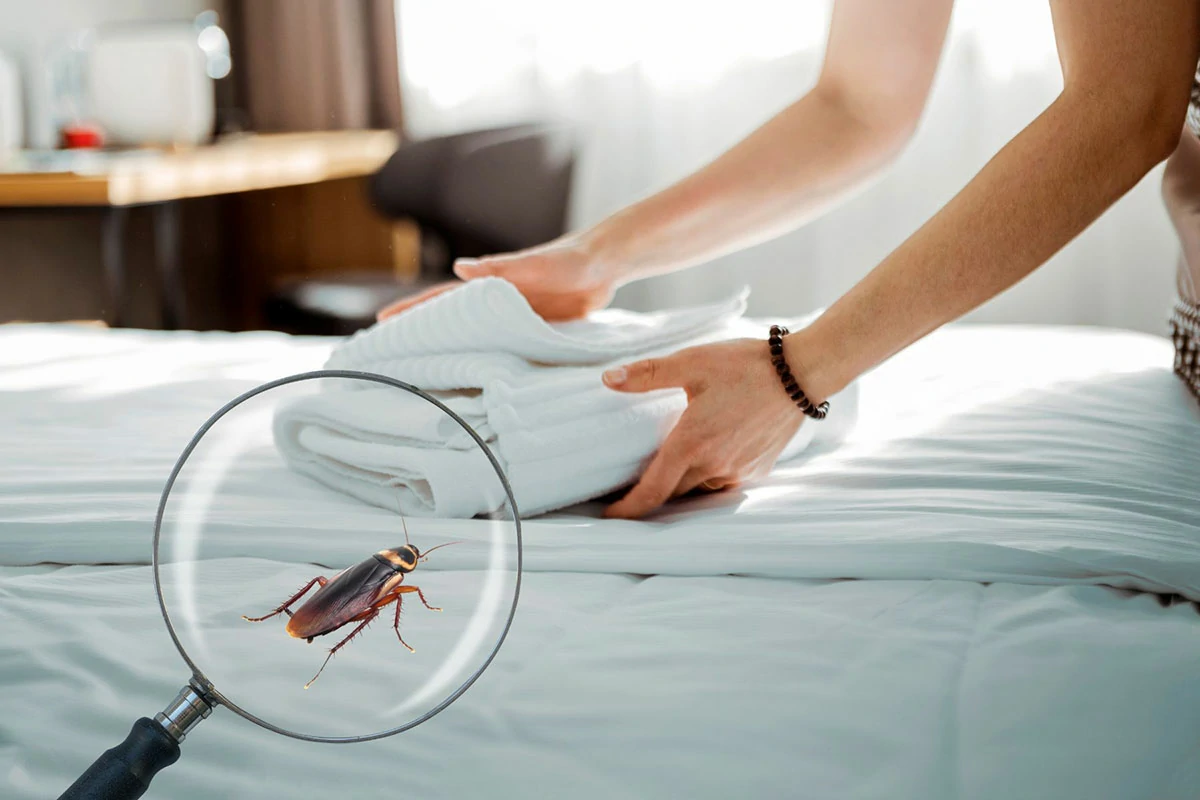How to make sure you don’t bring cockroaches home from vacation? Answer is – Cockroaches can be sneaky hitchhikers, clinging to luggage, bags, and even clothing. To avoid bringing these unwanted guests back home, it’s essential to be vigilant. Inspect your hotel room carefully, keep your luggage off the floor and sealed when not in use, and unpack your belongings in an isolated area like your garage or laundry room upon arrival. If you have any suspicions, wash clothes in hot water and consider isolating luggage for a period of time.
Summary
- Cockroaches are resilient and can travel in luggage and belongings.
- Careful inspection of your accommodations is crucial to avoid bringing pests home.
- Specific strategies like luggage isolation and careful unpacking can minimize the risk of infestation.
- Proactive pest control measures at home offer additional protection.
How to make sure you don’t bring cockroaches home from vacation?

You’ve just returned from the vacation of a lifetime – sun-kissed skin, refreshed spirit, and a suitcase full of souvenirs. But as you open that suitcase, a flash of movement catches your eye. The sinking realization hits: you haven’t just brought home memories; you’ve brought home a cockroach infestation.
Unfortunately, this nightmare scenario is more common than you might think. Vacations, with their mix of unfamiliar lodgings and relaxed routines, can be the perfect opportunity for cockroaches to hitch a ride back to your unsuspecting home. Let’s explore why vacations put you at risk and, more importantly, what you can do to protect your space.
The Horror of Returning Home to a Cockroach Infestation
Cockroaches aren’t just a nuisance; they pose potential health risks. They can carry bacteria, trigger allergies, and worsen asthma symptoms. On top of the physical concerns, cockroaches bring with them a heavy dose of psychological stress.
Knowing these unwanted guests are lurking in your cupboards, scuttling across your floors, and potentially contaminating your food is enough to make anyone’s skin crawl.
Why Vacations Can Be a Prime Time for Pest Encounters
There are several reasons why vacations make you more susceptible to bringing home cockroaches:
Hotels, Motels, and Vacation Rentals: No matter how clean a place appears, you can’t be sure of its pest control history. Cockroaches are masters of hiding, and even a single egg case tucked away in luggage at a previous guest’s stay could lead to an infestation.
Travel Disrupts Routine: When you’re focused on sightseeing and relaxation, it’s easy to let your guard down regarding cleanliness. Food crumbs left out, open suitcases on the floor, and hastily packed belongings at the end of your trip create a welcoming environment for opportunistic cockroaches.
Varying Climates: Different locations could have a higher prevalence of cockroaches, especially warmer, humid regions. Roaches native to the area you’ve visited might be more resilient or difficult to detect than those commonly found in your home environment.
How to Avoid Bringing Cockroaches Home from Vacation

1. Inspect Your Hotel Room Thoroughly
Before you settle in and unpack your bags, take a few minutes to conduct a thorough inspection of your hotel room.
This proactive step can make a significant difference in preventing an unwelcome infestation upon your return home.
What to Look For (Signs of Cockroach Activity)
Droppings: Cockroach droppings look like tiny black specks, similar to ground coffee or pepper. You might find them concentrated in corners, under furniture, or along baseboards.
Egg Cases: These are small, brown, and capsule-shaped. Roaches often tuck them away in hidden areas like the backs of drawers or under appliances.
Shed Skins: As cockroaches grow, they molt, leaving behind empty exoskeletons that can appear translucent or slightly brownish.
Smear Marks: In heavily infested areas, you may notice dark streaks or smears on walls or surfaces where cockroaches have traveled.
Live Cockroaches: Of course, the most obvious sign is seeing live cockroaches themselves. They are nocturnal, so use your phone’s flashlight to check dark spaces during the night.
Where to Focus Your Inspection
Under Furniture: Check under beds, nightstands, dressers, and chairs. Pay close attention to cracks, crevices, and any areas where furniture meets the wall.
Behind Appliances: Look behind the refrigerator, microwave, and any other appliances in the room.
Closets and Drawers: Open drawers and closets, inspecting the corners and areas where items are stored, as these offer dark hiding spots.
Bathrooms: Check around the sink, toilet, and shower/tub. Cockroaches are drawn to moisture.
Baseboards and Doorways: Inspect the baseboards along the walls and the areas around doorways for any signs of activity.
2. Protect Your Luggage
Your suitcase is a prime target for hitchhiking cockroaches. Here’s how to make it a less appealing hideout:
Keep Luggage Elevated off Floors: Never leave your suitcase directly on the floor, especially in carpeted areas. Use the luggage rack provided in your hotel room, or place your suitcase on a chair, desk, or even in the bathtub when not in use.
Seal Bags When Not in Use: Don’t leave your suitcase open and inviting. Zip it closed whenever you’re not actively packing or unpacking. This simple step makes it more difficult for cockroaches to sneak inside. Additionally, store clothing and other belongings inside plastic zip-top bags within your luggage for an extra layer of protection.
Consider Luggage Liners: Specialized luggage liners are available example: Travelon Luggage Liner that create an additional barrier between your belongings and the exterior of your suitcase. While not foolproof, they can add a degree of protection.
3. Returning Home: Unpack Strategically
The way you unpack your belongings after a trip can make all the difference in preventing a potential infestation. Here’s the safest strategy:
Isolate Your Luggage: Don’t bring your suitcase directly into your bedroom or living areas. Instead, unpack in a designated area like your garage, laundry room, or even your bathtub. This creates a buffer zone, reducing the chances of any hitchhiking cockroaches escaping into the main part of your home.
Immediately Wash All Clothing on a Hot Cycle: Even if your clothes appear clean, wash everything on the hottest water setting suitable for the fabrics. The combination of high heat and detergent will effectively kill any cockroaches or their eggs that might be clinging to your clothing.
Inspect Luggage Carefully Before Bringing It Indoors: Before bringing your luggage inside for storage, thoroughly inspect it inside and out. Look in all seams, pockets, and compartments. If you find any signs of cockroaches, follow these steps:
- Vacuum: Thoroughly vacuum your suitcase inside and out to remove any visible pests and debris. Dispose of the vacuum bag immediately outside your home.
- Freeze: If possible, seal your suitcase in a large plastic bag and place it in the freezer for at least four days. Freezing temperatures will kill cockroaches and their eggs.
- Sunlight: As a last resort, leave your luggage in direct sunlight for several hours. The heat and light exposure may drive out any remaining pests.
Can cockroaches get into sealed luggage?

Unfortunately, the answer isn’t a simple yes or no. It depends on several factors:
Type of Seal: A standard zip-closure suitcase is vulnerable. Cockroaches, especially young ones, can squeeze through surprisingly tiny gaps. However, a truly airtight, hermetically sealed container offers much better protection.
Duration: Cockroaches are resilient and can survive for a time without food or water. Even if initially sealed out, a determined cockroach might eventually find a way in given a prolonged period.
Egg Cases: Cockroach egg cases (oothecae) are more durable than adult insects. If an egg case is tucked away within luggage, it might remain viable even with a tight seal, leading to an infestation later.
The Bottom Line: While sealed luggage offers a degree of protection, it’s not a foolproof guarantee against cockroaches. It’s still essential to exercise caution and inspect your belongings carefully.
What temperature kills cockroaches and their eggs?
Cockroaches are sensitive to temperature extremes. Here’s a breakdown:
Sustained Heat: Exposure to temperatures above 120°F (49°C) for an extended period will kill both cockroaches and their eggs. This is why washing clothes on a hot water cycle is so effective.
Freezing: Cockroaches cannot survive prolonged exposure to freezing temperatures. Placing luggage or infested items in a freezer at 0°F (-18°C) for at least four days is a reliable way to eliminate both roaches and their eggs. (Source: University of Minnesota Extension)
Should I throw away my luggage if I suspect cockroaches?
In most cases, throwing away your luggage is not necessary. Here’s why:
Thorough Cleaning: Vacuuming your suitcase thoroughly, followed by washing or freezing it, should effectively eliminate any cockroach infestation.
Cost vs. Risk: Unless your luggage is extremely damaged or heavily infested, the replacement cost likely outweighs the potential risk of keeping it after proper treatment.
Storage: Sealing cleaned luggage in airtight plastic containers or bags during a period of non-use offers a further safeguard.
Additional Preventative Measures
1. Pest-proofing Your Home (Sealing Gaps, Food Storage)
Taking steps to make your home less inviting to cockroaches is a proactive way to reduce the risk of an infestation, even if you suspect you may have brought some back from vacation.
Sealing Gaps and Cracks: Cockroaches can squeeze through surprisingly small openings. Inspect your home carefully and seal any of the following:
- Gaps around baseboards, windows, and doors (use caulk or weatherstripping)
- Cracks in walls or foundations
- Holes around pipes or plumbing fixtures
Food Storage: Cockroaches are attracted to food sources. Take these precautions:
- Store food in airtight containers, especially dry goods like cereal, rice, and flour.
- Refrigerate fruits and vegetables promptly.
- Don’t leave dirty dishes out overnight.
- Clean up spills and crumbs immediately, paying special attention to under appliances.
Moisture Control: Roaches need water to survive. Fix leaky faucets, dry out damp areas, and ensure your home has proper ventilation to reduce humidity.
2. Early Detection Signs
Being aware of the early signs of a cockroach infestation is key to tackling the problem before it gets out of hand. Keep an eye out for:
- Droppings: Small, dark specks of cockroach feces that resemble coffee grounds.
- Egg Cases: Brownish, capsule-shaped cases roughly the size of a bean.
- Molted Skins: Cockroaches shed their exoskeletons as they grow. These shed skins can be translucent or light brown.
- Musty Odor: A strong, musty smell in certain areas could indicate a sizable cockroach presence.
- Live Sightings: Obviously, seeing live cockroaches is the most definitive sign of an infestation. They tend to be most active at night.
Sarah Bennett
“Regular inspections are crucial,” emphasizes Sarah Bennett, a technician with ABC Pest Control. “Check under sinks, behind appliances, and in pantries regularly for any signs of cockroach activity. The sooner you catch a problem, the easier it is to manage.”
What to Do If You Suspect You’ve Brought Cockroaches Home

Discovering signs of cockroaches after a trip can be incredibly unsettling. However, quick and decisive action is key to containing the problem and preventing a full-blown infestation.
1. Isolating the Potential Infestation
Don’t Panic: While understandably unpleasant, remember that a few cockroaches don’t necessarily mean your entire home is doomed. Acting strategically is key.
Contain the Issue: If you find evidence of cockroaches in your luggage, seal it immediately in a large plastic bag or container to prevent any escape artists.
Identify the Hotspots: Carefully examine the areas where your luggage was stored during your trip and upon your return. These become the focus areas for your investigation and treatment.
Cleaning Blitz: Thoroughly clean and vacuum any areas where you suspect cockroach activity. Pay attention to cracks, crevices, and hidden spaces. Dispose of vacuum bags outside your home immediately.
2. Contacting a Pest Control Professional
While DIY methods exist for tackling cockroach infestations, contacting a pest control professional is often the most effective and safest option, especially if you suspect you’ve brought them back from elsewhere. Here’s why:
Expertise: Pest control technicians have in-depth knowledge of cockroach behavior and the most effective treatment techniques. They can accurately identify the species of cockroach you’re dealing with, which influences the best approach.
Targeted Treatment: Professionals can pinpoint the source of the infestation and apply targeted treatments that are less disruptive to your home life.
Safety: Over-the-counter cockroach insecticides can be harmful if not used correctly. Pest control companies use products and techniques designed to eliminate the problem while protecting your family and pets.
Peace of Mind: Handling a potential cockroach infestation can be incredibly stressful. A professional can take over and provide reassurance that the problem is being addressed effectively.
Mike Wilson Expert Opinion
“The sooner you call a pest control professional after discovering cockroaches, the better,” says Mike Wilson, owner of Wilson’s Wildlife & Pest Removal. “Early intervention can prevent a small problem from spiraling out of control.”
Conclusion
Cockroaches are resilient and resourceful creatures, making them challenging travel companions to bring home unknowingly. However, by understanding their habits and implementing the strategies we’ve discussed, you can significantly reduce your risk and protect your living space from infestation. Key Takeaways:
- Proactive Prevention is Key: Careful hotel inspections, luggage protection, and strategic unpacking go a long way in keeping cockroaches out of your home.
- Vigilance is Your Ally: By pest-proofing your home and being aware of the early signs of infestation, you can catch an issue before it gets out of hand.
- Don’t Hesitate to Call in Reinforcements: Pest control professionals are equipped with the knowledge and tools to swiftly and effectively eliminate cockroach problems at any scale.
FAQs
Q: I found a cockroach in my suitcase after returning home. Does this mean my house is infested?
Not necessarily. While it’s certainly cause for concern, a single cockroach doesn’t always signify a full-blown infestation. Follow the isolation and cleaning steps outlined earlier, monitor closely for additional signs of activity, and consider consulting a pest control professional for peace of mind.
Q: Can cockroaches survive in a sealed suitcase for an extended period?
It depends. Young cockroaches and egg cases are more resilient. While a perfectly airtight seal would eventually suffocate them, even tiny gaps could allow some to survive for a surprisingly long time. This is why thorough unpacking and cleaning are essential, even if your luggage was sealed during travel.
Q: Are there natural ways to deter cockroaches?
While some home remedies exist (such as bay leaves, diatomaceous earth, or essential oils) their effectiveness is often debated. For a confirmed infestation, professional-grade solutions are generally more reliable. Think of natural deterrents as an added layer of prevention, not your primary line of defense.
Q: My neighbor has a cockroach problem. Am I at risk?
Unfortunately, yes. Cockroaches can travel between apartments or homes, especially in multi-unit buildings. Notify your landlord or building manager of your neighbor’s infestation and take extra precautions to pest-proof your own home.
Q: I’m terrified of cockroaches! What can I do to ease my anxiety about them?
Your fear is understandable! Focusing on proactive measures can be empowering. Knowledge and prevention are your best friends. Seek reliable information can be helpful) and remember, by taking the steps in this guide, you’re drastically minimizing your risk.







